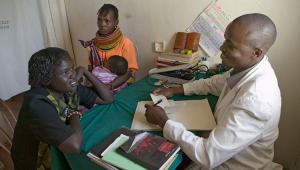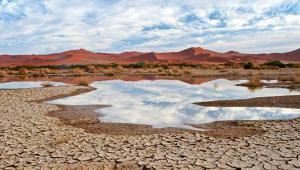The current El Niño, one of the strongest on record, has led to severe droughts or flooding in some of the world’s poorest places, and left many in critical need of humanitarian assistance.
UN humanitarian relief coordinator Stephen O’Brien said he was “sounding the alarm about the genuinely disastrous impact” the cyclical weather pattern could have.
“The human consequences of El Nino are all too real,” he added.
An estimated 60 million people around the world have already been affected, with Africa, Asia, South America and the Pacific the hardest hit places.
In Ethiopia alone, El Niño has left 10 million people in need of food assistance due to severe drought. Across southern Africa, a number of nations have declared a state of emergency as crops and livestock deplete.
Elsewhere, El Niño has caused heavy rains and floods, increasing the risk of water- and vector-borne diseases.
“People urgently need food, nutrition, water, sanitation and hygiene as well as health services,” O’Brien stressed, adding that recovery will take years.
He noted that the current outlook is made even bleaker by the fact that El Niño’s counterpoint, La Nina, which results in a cooling rather than warming of the Pacific Ocean, could strike at the end of this year.
It typically brings floods to drought-affected communities and makes tropical cyclones in Asia-Pacific hit with greater ferocity.
Both El Niño and La Nina increase hazards such as storms and disrupt commodity markets, pushing up the price of essentials like food.
O’Brien said he was “deeply worried” and said the international community must “act today to help people whose entire way of life and survival is threatened”.
Governments, the UN, NGOs and other partners have worked to develop response plans which currently require some $3.6bn to meet critical needs and build resilience of communities.
But only 13 countries’ plans have been completed and some are yet to be finalised, meaning the figure is likely to rise.
Currently, the funding gap for the combined El Niño response stands at more than $2.2bn.
O’Brien said there are only weeks or months left to plug the gap and “get this right”.
Izumi Nakamitsu, assistant administrator of the UN Development Programme, added that the world needs to prepare for future shocks caused by the weather phenomena.
“We feel that this balance has to shift. It is much cheaper to invest in preparedness and disaster risk reduction than in response,” she said.
Nevertheless, Care International secretary general pointed out that as well as the political will to break a cycle where early warning still results in delayed response, the international community also needs the “resources to respond now”.
“NGOs both local and international can respond at huge scale if provided with the funding we need,” he stated.
Earlier this week the European Commission announced that the European Union would consider delivering an additional €414m for El Niño-related food crises. However, this still needs to be approved by member states.













